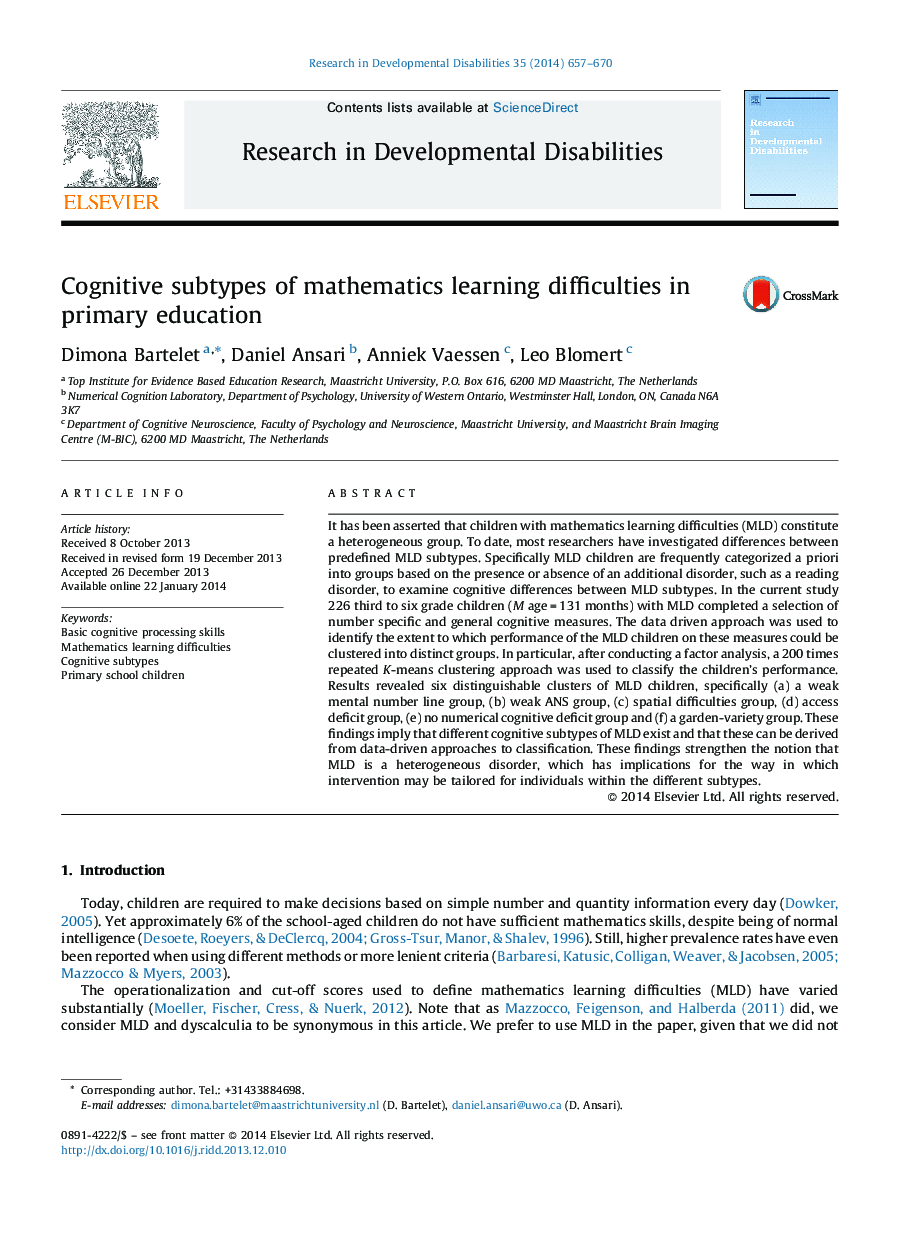| کد مقاله | کد نشریه | سال انتشار | مقاله انگلیسی | نسخه تمام متن |
|---|---|---|---|---|
| 371389 | 621920 | 2014 | 14 صفحه PDF | دانلود رایگان |
• MLD is a heterogeneous disorder.
• The seven number-specific processing skills are reducible to four factors.
• Six clusters were found with unique patterns of cognitive strength and weaknesses.
• The access deficit subtype is characterized by the weakest arithmetic performance.
• None of the subtypes was particular to a specific age group or gender.
It has been asserted that children with mathematics learning difficulties (MLD) constitute a heterogeneous group. To date, most researchers have investigated differences between predefined MLD subtypes. Specifically MLD children are frequently categorized a priori into groups based on the presence or absence of an additional disorder, such as a reading disorder, to examine cognitive differences between MLD subtypes. In the current study 226 third to six grade children (M age = 131 months) with MLD completed a selection of number specific and general cognitive measures. The data driven approach was used to identify the extent to which performance of the MLD children on these measures could be clustered into distinct groups. In particular, after conducting a factor analysis, a 200 times repeated K-means clustering approach was used to classify the children's performance. Results revealed six distinguishable clusters of MLD children, specifically (a) a weak mental number line group, (b) weak ANS group, (c) spatial difficulties group, (d) access deficit group, (e) no numerical cognitive deficit group and (f) a garden-variety group. These findings imply that different cognitive subtypes of MLD exist and that these can be derived from data-driven approaches to classification. These findings strengthen the notion that MLD is a heterogeneous disorder, which has implications for the way in which intervention may be tailored for individuals within the different subtypes.
Journal: Research in Developmental Disabilities - Volume 35, Issue 3, March 2014, Pages 657–670
